Pakistan upgrades ties with Afghanistan
The announcement of upgrading ties was first made by Chinese Foreign Minister Wang Yi last week
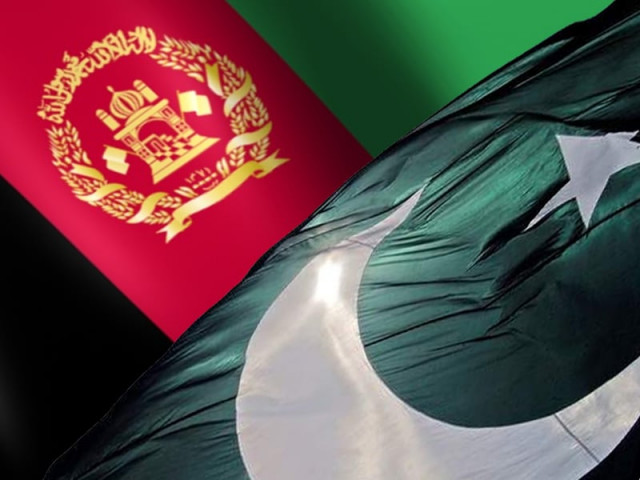
Pakistan on Friday officially confirmed that it was upgrading diplomatic ties with Afghanistan and would soon exchange ambassadors with Kabul, in a significant shift in Islamabad's policy towards Kabul.
The announcement of upgrading ties was first made by Chinese Foreign Minister Wang Yi last week when he hosted foreign ministers of Pakistan and Afghanistan in Beijing.
On Friday, Foreign Minister Ishaq Dar, who held a second meeting with the Chinese Foreign Minister within a span of 10 days in Hong Kong, issued a statement, announcing the upgrading of ties with Kabul.
"Pakistan-Afghanistan relations are on a positive trajectory after my very productive visit to Kabul with the Pakistan delegation on 19th April 2025," Dar said in a statement.
"To maintain this momentum, I am pleased to announce the decision of the Government of Pakistan to upgrade the level of its Chargé d'Affaires in Kabul to the level of Ambassador," he added.
"I am confident this step would further contribute towards enhanced engagement, deepen Pak-Afghan cooperation in economic, security, CT & trade areas and promote further exchanges between two fraternal countries," he further said.
Pakistan and Afghanistan have maintained diplomatic presence in each other's capitals but the missions were headed by charged affairs and not the full time Ambassadors.
Exchanging ambassadors means that Pakistan would move a step closer to recognizing the Taliban government. China was the first country which sent a full time Ambassador to Kabul and accepted the Taliban envoy in March this year.
A senior Pakistani official defended the move, saying apart from China, other regional countries including Turkey and Russia were also contemplating appointing their full time Ambassadors to Kabul.
It is believed that China was nudging both sides from behind the scenes to resolve their issues through dialogue.
Sources said for the first time the Taliban government had shown not only willingness but initiated certain steps to rein in groups operating out of its territory.
The Taliban government recently launched a crackdown on elements supporting groups inimical to Pakistan. Kabul in particularly targeted Afghan citizens, who joined the banned Tehreek-e-Taliban Pakistan (TTP).
Another major sign suggesting a shift in its approach was a statement by Senior Afghan Taliban commander Saeedullah Saeed, who on Wednesday warned militant factions against unauthorized jihad, particularly in Pakistan, saying such actions were against Shariah and the orders of the Islamic Emirate's leadership.
Speaking at a police passing-out ceremony, Saeed said that fighting in any country, including Pakistan, without the explicit command of the Amir is not permissible.
"Joining various groups to wage jihad abroad does not make one a true mujahid," he stated. "Only the Amir of the state has the authority to declare jihad — not individuals or groups."
Saeed emphasized that those carrying out attacks independently or moving between regions to conduct operations cannot be classified as legitimate fighters under Islamic law. "Jihad based on personal ego or group loyalty is considered fasad (corruption), not legitimate resistance," he added.
The issue of terrorism was one of the key talking points during the three-way talks in Beijing.
The Chinese official read out said Wang Yi stressed the need for combating terrorism in all its forms and manifestations. He also called for joint cooperation to combat the menace of terrorism and cautioned against external interference.
In the wake of recent escalation in tensions into a military conflict between India and Pakistan, New Delhi was trying to reach out to the Taliban government.
Breaking from its decades-old policy, Indian External Affairs Minister S J Shankar spoke to the Afghan interim Foreign Minister.
The move seems to be part of India's recalibration in order to put pressure on Pakistan. But the meeting in Beijing appears to have preempted that move.
The Chinese foreign ministry statement suggested that there was great incentive for the Taliban government to work closely with Beijing and Islamabad.

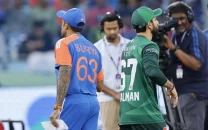
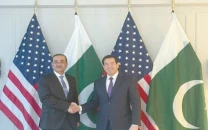
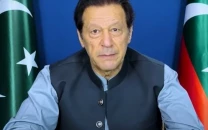
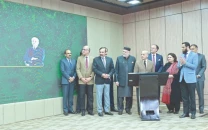
















COMMENTS
Comments are moderated and generally will be posted if they are on-topic and not abusive.
For more information, please see our Comments FAQ